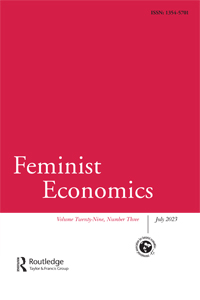
While increased access to household assets has been shown to improve older individuals’ autonomy and bargaining power at home, the role of gender hierarchy in shaping differential impacts of household assets has received far less attention. This article explores the gender asymmetry in the association of older people’s (age 60 years or more) decision-making power at home and survival probability with their ownership of and managerial control over agricultural land in rural India. Using data from the India Human Development Survey, results find that in multi-generational households, landownership at the household level is associated with higher decision-making power and survival probability for older men but not for older women. Among older women, the relationship between household landownership and decision-making power is positive when they have clearly established titles to the land or managerial control but negative when their names are not on the land title.